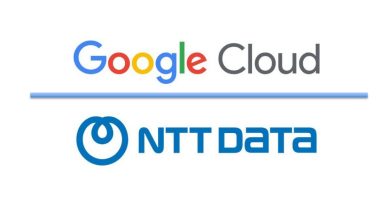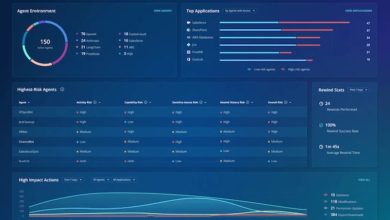Salesforce 2025 ASEAN Predictions: Part 1

By Sujith Abraham, Senior Vice President and General Manager, ASEAN, Salesforce
In 2024, we entered the third wave of AI with autonomous AI agents that can make decisions and take action without human intervention – just as AI was meant to be. AI agents are a game-changer for businesses, allowing them to boost productivity, deliver personalised customer experiences and drive topline growth. The next year will see ASEAN businesses transition from AI experimentation to full-scale implementation, as they work towards a future where humans and agents drive customer success together with AI, data and action.
#1 Autonomous Agents Provide Opportunity for Topline Growth, Delivering on the Promise of AI
In the past two years, businesses have focused on cost-cutting measures in response to global economic uncertainties and slowing growth. The availability of autonomous agents today has now surfaced more opportunities for businesses to drive topline growth.
How? These agents will deliver on the promise of AI, succeeding where solutions such as copilots fall short. One limitation of earlier innovations was their siloed focus on unstructured data. For example, copilots could only act based on data within emails or presentations. This misses critical transactional context, such as customer purchase history or product details. Copilots could only see part of the customer story causing them to fall short on providing actionable insights, and businesses, in turn, missed out on opportunities to foster deeper and more compelling customer relationships that generated new revenue streams.
Autonomous agents can significantly impact a company’s growth trajectory. Take a bank that works with thousands of business clients as an example. An initial analysis of spend may lead the bank to think that most of their customers are SMEs with small spends. But a deeper look reveals that these businesses are spreading their spend across banks. It is extremely difficult to turn the workforce around to deepen engagements with all customers. Imagine if they implement autonomous agents to maintain consistent customer engagement without constant human oversight. And agents operate 24/7 – think of how much coverage across customers is now possible. The bank ultimately increases its revenue base which might otherwise be lost to competitors.
AI agents also allow sales teams to automatically pre-qualify leads before handing them to human agents. This way, human agents do not waste time on unresponsive prospects, basic inquiries, or low-engagement leads, which can significantly improve productivity and bottom line.
#2 Out-of-the-box AI/Agentic Solutions and Unified Data Will Underpin AI Success
In the race to operationalise AI, the winners will be those who forgo DIY solutions in favour of out-of-the-box solutions that offer superior speed, deployment, and accuracy. Businesses that adopt out-of-the-box solutions can focus on AI deployment and achieve immediate impact and value. In contrast, those who attempt to “DIY” their AI often face setbacks in the form of hidden costs and a slow realisation of AI capabilities.
Having the right data foundation is also key to maximising ROI from AI investments. Organisations need to consolidate structured data, such as customer transaction records, and unstructured data, such as customer emails, product information, and corporate policies, to build a unified view of their customers. Without it, AI cannot deliver accurate, contextualised, and trusted outputs. In this regard, zero-copy capabilities will ensure companies maximise their existing assets while minimising data preparation costs.
#3 For ASEAN, By ASEAN: An Organic AI Ecosystem Emerges Within the Region
AI is ushering in one of the biggest technological shifts of our generation, creating new services, roles, and industries. Just as how the invention of smartphones and mobile applications created a thriving ecosystem of app developers, the growth of AI platforms is fostering a new generation of AI developers. This drives innovation in ASEAN and opens the pathway for local talent to develop AI tools tailored to meet the region’s unique needs – whether it is Small Language Models (SLMs) that support native languages like Singlish or Taglish, or advanced models that tackle specific challenges like anti-money laundering.
With a population of over 650 million, including individual markets with over 100 million people, such as Indonesia and the Philippines, and a combined GDP comparable to major economies, there is a massive opportunity for AI developers in ASEAN.
The growth of the AI industry in the region will not only attract established global tech giants to set up operations and company headquarters locally but also catalyse the birth of home-grown startups. With that, we’ll see a migration of strategic roles typically available in the West to this part of the world, creating new opportunities for the future workforce. Something for parents to consider when raising their little ones!
#4 AI Agents Redefine Jobs, Empowering Employees to Focus on Strategic Work
AI agents are transforming the workforce by automating repetitive and time-consuming tasks, freeing employees to focus on higher-value work that drives innovation and growth.
This presents an opportunity for the workforce to transform their skill sets and take on more strategic roles. As AI agents become increasingly integrated into the workforce, employees will need to develop new skills to manage and optimise them. They will also have to leverage their industry knowledge to train these agents so that they can deliver the desired business outcomes.
This transformation mirrors the 1980s shift in banking, when staff moved from routine tasks like producing bank statements to customer service and financial advisory roles as automation took over.
Fast-forward to today. A telco that relies on AI agents to handle routine customer inquiries at scale will be able to empower its employees to focus on strategic tasks like optimising AI deployment and enhancing customer experiences. Not only does this create new career opportunities for the telco’s staff, the telco may even save on operational expenses and infrastructure costs. With virtual AI agents running routine operations, the telco can easily scale operations, without necessarily building new offices or stores for its workforce to service the expanded client pool.
By blending human expertise with AI, companies can create a more agile workforce focused on driving growth and preparing employees for roles that require creativity, problem-solving, and strategic thinking.




